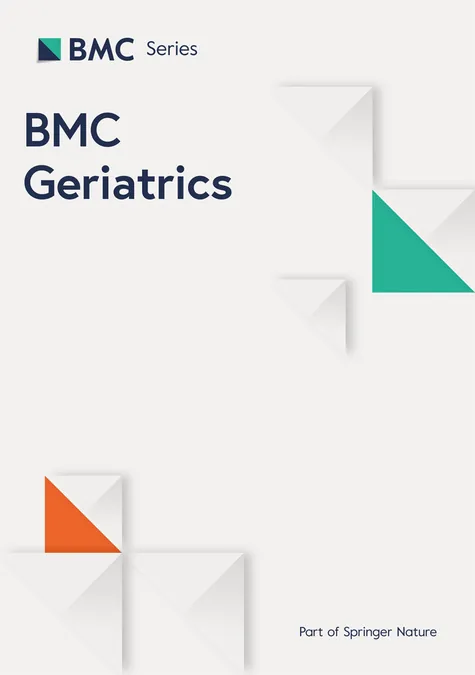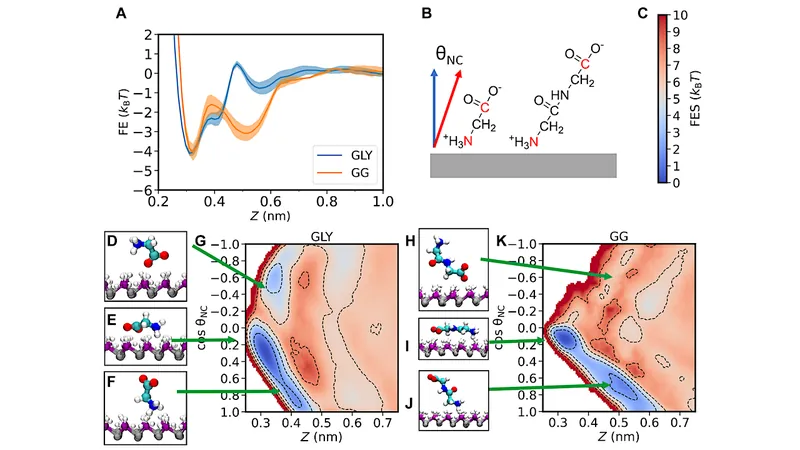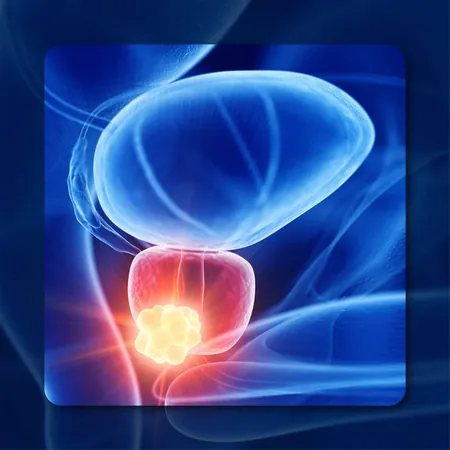
Revolutionizing Elderly Dental Care: Insights from Focus Group Study on Comprehensive Geriatric Assessment
2025-04-08
Author: Daniel
In the dynamic field of healthcare, a recent study shines light on a groundbreaking approach to dental care for older adults through Comprehensive Geriatric Assessment (CGA). This innovative model aims to enhance treatment planning and improve oral health outcomes for the aging population, addressing the unique complexities they face.
A Closer Look at the Study Design
The foundation of this research was a meticulous scoping review that aimed to collate existing modeling concepts related to dental treatment in elderly patients. Published in June 2022, this review searched prominent medical databases, including PubMed and Scopus, focusing on studies detailing assessment methods for dental care and treatment planning specific to individuals aged 65 and over. To ensure a comprehensive capture of relevant information, studies were meticulously screened, filtering out those lacking a broad perspective on oral health or specifically tailored assessments.
From these careful evaluations, the researchers identified 12 pivotal reports that provided significant insight into the intersection of geriatrics and dental care. This represented a critical move towards recognizing and addressing the multifaceted needs of older patients as they navigate dental treatments.
Engaging Experts Through Focus Groups
To delve deeper into the practical application of CGA in dental settings, two focus group sessions were conducted with experts from diverse backgrounds. The first group comprised medical professionals specializing in geriatrics, while the second group included seasoned dentists with substantial experience in treating older adults. These discussions illuminated the various challenges facing healthcare providers and sparked a lively exchange of ideas about integrating CGA into clinical practice.
Key Findings: Essential Components of CGA in Dental Care
The discussions highlighted several vital components of CGA that specialists believe are crucial for improving oral health outcomes. Topics such as dependency levels, cognitive function, polypharmacy, and mental health emerged as surrounding factors that should be carefully considered when planning dental treatments for older patients.
1. **Dependency and Cognitive Assessment**: Both focus groups emphasized the necessity of evaluating patients’ abilities to perform daily activities, as this reflects their level of dependence. Cognitive assessments were also viewed as critical in determining patients' capacity to maintain oral hygiene and adhere to treatment plans.
2. **Mental Health Considerations**: Depression and other mental health issues were raised as significant factors affecting dental treatment. Experts agreed that understanding a patient's mental state could vastly influence treatment approach and compliance.
3. **Swallowing and Nutritional Status**: Dysphagia and malnutrition were identified as common concerns among elderly patients, affecting their overall health and capacity for oral maintenance. Experts advocated for simple screening methods to assess these risks in practice.
4. **Socioeconomic Barriers**: The discussion also pointed to socioeconomic factors impacting care, emphasizing the role of caregivers in managing oral health for dependent patients. Effective communication and education for caregivers regarding proper oral hygiene were deemed essential for successful treatment.
Proposed Model for Comprehensive Assessment in Dental Settings
Building on these insights, the study put forth seven interrelated steps for an effective CGA model tailored for dental professionals. This model emphasizes a holistic approach, integrating evaluations of oral, systemic, cognitive, and functional capabilities, thereby ensuring that dental care is not only reactive but preventive and proactive.
The Future of Geriatric Dental Care: A Call to Action!
As dental care evolves, the primary aim remains clear: to enhance the quality of life for older adults by providing comprehensive, individualized care. This study invites further research and application of its findings across diverse clinical settings. Engaging dentists in multidisciplinary teams and ensuring they play an active role in the assessment and treatment of geriatric patients is pivotal for improving health outcomes.
With the aging population on the rise, it is crucial that a new paradigm in dental care emerges—one that appreciates the complexity of geriatrics while addressing the systematic barriers faced by older adults. The conversation initiated by this focus group study is just the beginning of a transformative journey in oral health for our elderly population.
Stay tuned as we continue to unravel the latest developments in delivering improved dental care for our aging communities!



 Brasil (PT)
Brasil (PT)
 Canada (EN)
Canada (EN)
 Chile (ES)
Chile (ES)
 Česko (CS)
Česko (CS)
 대한민국 (KO)
대한민국 (KO)
 España (ES)
España (ES)
 France (FR)
France (FR)
 Hong Kong (EN)
Hong Kong (EN)
 Italia (IT)
Italia (IT)
 日本 (JA)
日本 (JA)
 Magyarország (HU)
Magyarország (HU)
 Norge (NO)
Norge (NO)
 Polska (PL)
Polska (PL)
 Schweiz (DE)
Schweiz (DE)
 Singapore (EN)
Singapore (EN)
 Sverige (SV)
Sverige (SV)
 Suomi (FI)
Suomi (FI)
 Türkiye (TR)
Türkiye (TR)
 الإمارات العربية المتحدة (AR)
الإمارات العربية المتحدة (AR)